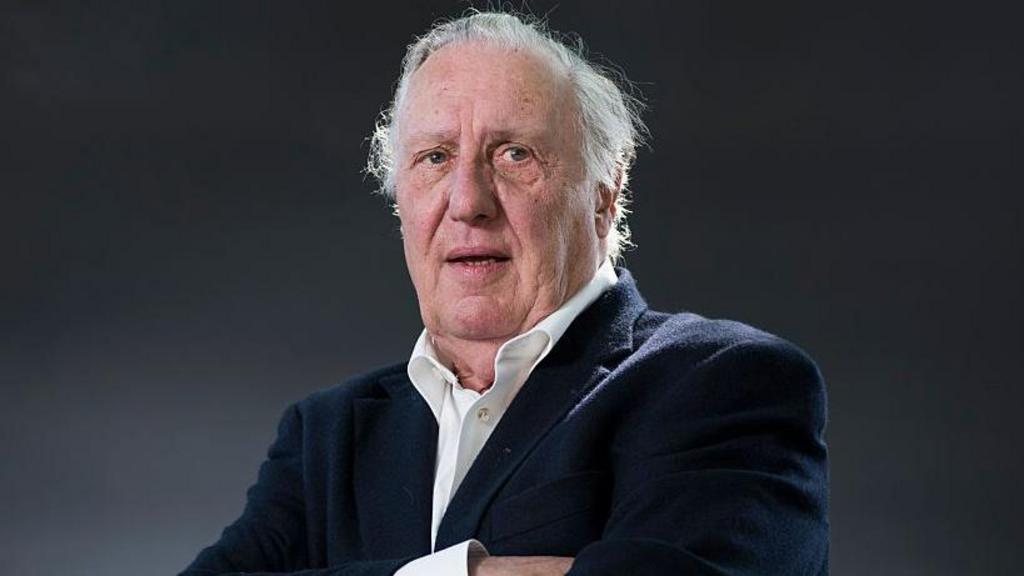Frederick Forsyth, renowned author of bestselling thrillers, passed away at the age of 86.
A former fighter pilot, journalist, and intelligence operative, Forsyth’s novels often drew upon his rich and varied experiences.
His narratives seamlessly integrated intricate technical details, maintaining the fast-paced thrill of his plots.
His meticulous research frequently embarrassed authorities, who were compelled to acknowledge the accuracy of his depictions of clandestine operations.
Frederick McCarthy Forsyth was born on August 25, 1938, in Ashford, Kent.
The only child of a furrier, he combated loneliness by immersing himself in adventure literature.
He counted among his favorites the works of John Buchan and H. Rider Haggard, but held a particular admiration for Ernest Hemingway’s *Death in the Afternoon*.
So captivated was he that, at 17, he journeyed to Spain to practice bullfighting with a cape.
He never faced a bull in combat. Instead, he spent five months at the University of Granada before undertaking his national service with the RAF.
Having long harbored dreams of flight, Forsyth misrepresented his age to qualify for piloting de Havilland Vampire jets.
In 1958, he joined the Eastern Daily Press as a local journalist, moving to Reuters three years later.
At Tonbridge School, Forsyth excelled primarily in foreign languages.
Fluent in French, German, Spanish, and Russian, he was a natural foreign correspondent.
Stationed in Paris, he covered numerous assassination attempts against President Charles de Gaulle, perpetrated by members of the Organisation de l’Armée Secrète (OAS).
This group of former military personnel opposed de Gaulle’s decision to grant Algeria independence.
Forsyth characterized the OAS as “white colonialists and neo-fascists.”
He surmised that a successful assassination would require a professional killer.
Forsyth joined the BBC in 1965.
Two years later, he reported on the Nigerian Civil War following Biafra’s secession.
When the conflict extended beyond expectations, Forsyth requested continued coverage, only to be rebuffed by the BBC.
He resigned and continued freelance reporting for two years.
He documented his experiences in *The Biafra Story* (1969). He later claimed to have worked for MI6 for two decades during this period.
He befriended mercenaries, learning techniques for obtaining false passports, acquiring weapons, and disabling opponents.
These skills informed *The Day of the Jackal*, his account of an attempted assassination of President de Gaulle, written in 35 days.
Initially facing numerous rejections, the book eventually found a publisher and achieved significant success.
The novel established the hallmarks of Forsyth’s style: a blend of fact and fiction, incorporating real individuals and events.
The Jackal’s passport forgery, using a deceased child’s identity, highlighted vulnerabilities in pre-digital verification systems.
A film adaptation starring Edward Fox was released in 1973.
Forsyth followed this with *The Odessa File*, tracking Eduard Roschmann, a notorious Nazi.
His research led to the identification of Roschmann, who was living in Argentina and later arrested but escaped to Paraguay.
The book also detailed a Nazi gold hoard, leading to the discovery of significant assets years later.
*The Dogs of War*, reportedly drew from an attempt to orchestrate a coup d’état in Africa, resulting in the capture of mercenaries by Spanish authorities.
*Devil’s Alternative*, featured a character heavily based on Margaret Thatcher, whom Forsyth admired.
He penned a biography of Col. Chukwuemeka Odumegwu Ojukwu in 1982.
His later works included *The Fourth Protocol*, adapted into a film starring Sir Michael Caine and Pierce Brosnan.
Forsyth’s career included a foray into writing a sequel to *The Phantom of the Opera*, followed by more thrillers and a long career as a broadcaster and political commentator.
A prominent Eurosceptic, his appearances on BBC’s *Question Time* often sparked debate.
His writing pace slowed after turning 70, but he continued to publish novels into his later years, including *The Kill List* and *The Fox*.
He famously used a typewriter and eschewed internet research.
Forsyth initially declared *The Fox* his last novel, later returning after the death of his wife to announce another project.
He had ceased undertaking extensive research trips after a serious infection during a trip to Guinea-Bissau.
His adventurous life mirrored the excitement and intrigue of his acclaimed thrillers.

